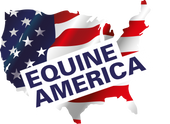All About The Equine Respiratory System

Horses are subjected to many respiratory challenges, whether they are stabled or living out. Seasonal respiratory issues can be a source of frustration to horses and horse-owners, and sometimes causes of these challenges are never identified. Pollen, fungal sports, dust, and other particulates in a horse's immediate environment can all cause respiratory problems. The second highest cause of poor performance and exercise intolerance is respiratory issues, only following musculoskeletal problems. Up to half of competition horses that are stables may have respiratory issues at some level, showing how prevalent this issue is!
Particularly during the summer months, pollen can cause many respiratory challenges. During winter, dusty stables or particles in hay can be a cause of respiratory irritation. It can seem like it's impossible to maintain respiratory health in horses, and many horse owners will have lots of questions about how to do this - which we will discuss below.
Why is my horse coughing?
A horse's upper airways are lined with sticky mucous, which, in a healthy horse, will trap fungal spores, dust particles, pollen or any other inhaled particle. These particles are then moved up the muco-ciliary escalator, and swallowed rather than inhaled, so they do not reach the lungs. If this process is compromised, these particles travel into the lungs and lower airways, causing an inflammatory response, damaging the hairs and narrowing the airways - causing the horse to cough.
The lungs of a horse are extremely large, and their main function is to inhale oxygen from the air and bring it into the lungs, where it will travel through increasingly small airways until it gets to membrane sacs called alveoli, where oxygen can pass through and be absorbed into the bloodstream through tiny blood vessels called capillaries into the alveoli, where it is exhaled from the lungs. Every cell in a horse's body needs oxygen to function, and so ensuring that the respiratory system is healthy and working properly is essential for the body's function. The respiratory system also aids other functions in the body, for example, temperature regulation.
Horses are obligate nasal breathers, which means they can only breathe through their noses, even if they are struggling to breathe. Typically, horses will breathe once every 5 seconds, which moves 5 litres of air (an incredible 60 litres of air in and out of the lungs per minute!). While exercising, horses will require more oxygen for their muscles to work harder, and so they will breathe more deeply and more quickly. As the horse begins to gallop or canter, they will breather in time with their stride, and can sometimes breathe up to twice a second! The speed that the air exits the horse's nostrils at is on par with a fire hose, at 60 litres per second.
How can I support my horses' respiratory system?
- Change turnout. If stabling your horse is causing issues from dust or hay, they will benefit from increased turnout. If your horse lives out and is affected by pollen, they will benefit from increased stabling.
- Soak your hay. This can help to remove fungal spores, bacteria, plant debris and other particles that can cause respiratory challenges. Soak from 30 minutes in clean water.
- Change the horse's bedding. Clean bedding means that dust cannot accumulate as easily if bedding is replaced regularly.
Are there supplements I can feed to help maintain respiratory health?
Equine America has a respiratory range that has been widely and successfully used by horses of all sizes, breeds and ages.
- Coff-Less helps to combat coughing and provides broncho-dilatory compounds.
- Pollen-Eze helps to maintain respiratory health during seasonal difficulties.
- Ventilator helps to soothe and open up the lower airways.
- Airways solution boosts broncho-dilation and can be syringed for rapid effect.
These respiratory supplements contain a carefully formulated blend of phytochemicals that also support the immune system.

